Research Groups
Bernien Lab - Quantum Science Atom-by-Atom
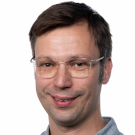
The BernienLab studies quantum science by assembling large quantum systems using individual atoms trapped in optical tweezers. This platform is ideally suited to both explore fundamental questions,... Read more …
Ferlaino Lab - Dipolar Quantum Gases
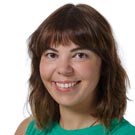
The research team led by Francesca Ferlaino focuses on the study of dipolar quantum phenomena, using strongly magnetic atomic species. In 2012, the group has created the first Bose-Einstein... Read more …
Grimm Lab - Ultracold Atoms and Quantum Gases
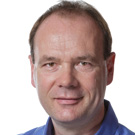
The research group led by R. GRIMM investigates ultracold particle systems consisting of optically trapped quantum gases at temperatures close to absolute zero. Because of their superb experimental... Read more …
Hammerer Group - Quantum Optics and Quantum Metrology
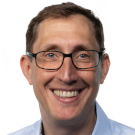
The Hammerer group conducts research in theoretical quantum optics, with a particular focus on quantum metrology and precision measurement. We study physical systems that can be described and... Read more …
Kirchmair Lab - Superconducting quantum circuits
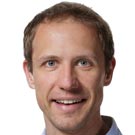
Gerhard Kirchmair’s research group works on superconducting circuits and their application for quantum computation and simulation. Superconducting Josephson junctions are used to realize the quantum... Read more …
Pichler Group - Quantum Science Theory
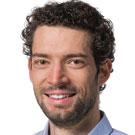
The research group led by Hannes Pichler studies quantum optical systems, quantum many-body physics and quantum information. The group aims at laying the theoretical foundations for next generation... Read more …
Emeritus Research Groups
Blatt Lab - Quantum Optics and Spectroscopy

The research group led by Rainer Blatt investigates quantum processes in a system of few ions held in ion traps. The experiments aim at achieving complete control over all quantum degrees of freedom in... Read more …
Zoller Group - Quantum Optics

Wittgenstein awardee Peter Zoller studies topics in the fields of theoretical quantum optics and atomic physics as well as quantum information and condensed matter theory. His main focus is on... Read more …
Most Recent Preprints
U(1) lattice gauge theory and string roughening on a triangular Rydberg array
Abstract
arXiv:2602.06123
Lattice gauge theories (LGTs) describe fundamental interactions in particle physics. A central phenomenon in these theories is confinement, which binds quarks and antiquarks into hadrons through the formation of string-like flux tubes of gauge fields. Simulating confinement dynamics is a challenging task, but recent advances in quantum simulation are enabling the exploration of LGTs in regimes beyond the reach of classical computation. For analog devices, a major difficulty is the realization of strong plaquette interactions, which generate string fluctuations that can drive a roughening transition. Understanding string roughening -- where strong transversal functions lead to an effective restoration of translational symmetry at long distances -- is of central importance in the study of confinement. In this work, we show that string roughening emerges naturally in an analog Rydberg quantum simulator. We first map a triangular Rydberg array onto a (2+1)D U(1) LGT where plaquette terms appear as first-order processes. We study flux strings connecting static charges and demonstrate that, near a deconfined quantum critical point, the string exhibits logarithmic growth of its transverse width as the separation between charges increases, along with the universal Lüscher correction to the confining potential -- both signatures of string roughening. Finally, we investigate the real-time dynamics of an initially rigid string, observing large fluctuations after quenching into the roughening regime, as well as string breaking via particle-pair creation. Our results indicate that rough strings can be realized in experimentally accessible quantum simulators, opening the door to detailed studies of how strong fluctuations influence string-breaking dynamics.
Robust certification of non-projective measurements: theory and experiment
Abstract
arXiv:2511.04446
Determining the conditions under which positive operator-valued measures (POVMs), the most general class of quantum measurements, outperform projective measurements remains a challenging and largely unresolved problem. Of particular interest are projectively simulable POVMs, which can be realized through probabilistic mixtures of projective measurements, and therefore offer no advantage over projective schemes. Characterizing the boundary between simulable and non-simulable POVMs is, however, a difficult task, and existing tools either fail to scale efficiently, provide limited experimental feasibility or work only for specific POVMs. Here, we introduce and demonstrate a general method to certify non-simulability of a POVM by introducing a hierarchy of semidefinite programs. It provides upper bounds on the non-simulability measure of critical visibility of arbitrary POVMs which are tight in many cases and outperform previously known criteria. We experimentally certify the non-simulability of two- and three-dimensional POVMs using a trapped-ion qudit quantum processor by constructing non-simulability witnesses and introduce a modification of our framework that makes them robust against state preparation errors. Finally, we extend our results to the setting where an additional ancilla system is available.
Inverse Quantum Simulation for Quantum Material Design
Abstract
arXiv:2601.12239
Quantum simulation provides a powerful route for exploring many-body phenomena beyond the capabilities of classical computation. Existing approaches typically proceed in the forward direction: a model Hamiltonian is specified, implemented on a programmable quantum platform, and its phase diagram and properties are explored. Here we present a quantum algorithmic framework for inverse quantum simulation, enabling quantum material design with desired properties. Target material characteristics are encoded as a cost function, which is minimized on quantum hardware to prepare a many-body state with the desired properties in quantum memory. Hamiltonian learning is then used to reconstruct a low-energy Hamiltonian for which this state is an approximate ground state, yielding a physically interpretable model that can guide experimental synthesis. As illustrative applications, we outline how the method can be used to search for high-temperature superconductors within the fermionic Hubbard model, enhancing -wave correlations over a broad range of dopings and temperatures, design quantum phases by stabilizing a topological order through continuous Hamiltonian modifications, and optimize dynamical properties relevant for photochemistry and frequency- and momentum-resolved condensed-matter data. These results extend the scope of quantum simulators from exploring quantum many-body systems to designing and discovering new quantum materials.
Observation of Fano-suppression in scattering resonances of bosonic erbium atoms
Abstract
The collisional properties of lanthanides exhibit remarkable complexity due to their many valence electrons, leading to an extraordinarily dense Feshbach spectrum showing signs of quantum chaos. Here we explore the situation of bosonic spin mixtures of erbium, adding the additional spin degree of freedom to the problem. We detect several inter- and intra-spin scattering resonances, exhibiting a peculiar asymmetric shape with a pronounced loss minimum. By developing a simplified multi-channel model we are able to recreate this characteristic behavior and to trace its origin to destructive interference between multiple pathways as predicted by Fano. We additionally observe a series of Fano-Feshbach resonances across multiple spin channels connected to the same molecular state, again confirmed by our theory. Our work opens the door for a detailed investigation to study multi-spin strongly-coupled scattering phenomena.
Engineering discrete local dynamics in globally driven dual-species atom arrays
Abstract
arXiv:2601.16961
We introduce a method for engineering discrete local dynamics in globally-driven dual-species neutral atom experiments, allowing us to study emergent digital models through uniform analog controls. Leveraging the new opportunities offered by dual-species systems, such as species-alternated driving, our construction exploits simple Floquet protocols on static atom arrangements, and benefits of generalized blockade regimes (different inter- and intra-species interactions). We focus on discrete dynamical models that are special examples of Quantum Cellular Automata (QCA), and explicitly consider a number of relevant examples, including the kicked-Ising model, the Floquet Kitaev honeycomb model, and the digitization of generic translation-invariant nearest-neighbor Hamiltonians (e.g., for Trotterized evolution). As an application, we study chaotic features of discretized many-body dynamics that can be detected by leveraging only demonstrated capabilities of globally-driven experiments, and benchmark their ability to discriminate chaotic evolution.
Bounded-Error Quantum Simulation via Hamiltonian and Lindbladian Learning
Abstract
arXiv:2511.23392
Analog Quantum Simulators offer a route to exploring strongly correlated many-body dynamics beyond classical computation, but their predictive power remains limited by the absence of quantitative error estimation. Establishing rigorous uncertainty bounds is essential for elevating such devices from qualitative demonstrations to quantitative scientific tools. Here we introduce a general framework for bounded-error quantum simulation, which provides predictions for many-body observables with experimentally quantifiable uncertainties. The approach combines Hamiltonian and Lindbladian Learning--a statistically rigorous inference of the coherent and dissipative generators governing the dynamics--with the propagation of their uncertainties into the simulated observables, yielding confidence bounds directly derived from experimental data. We demonstrate this framework on trapped-ion quantum simulators implementing long-range Ising interactions with up to 51 ions, and validate it where classical comparison is possible. We analyze error bounds on two levels. First, we learn an open-system model from experimental data collected in an initial time window of quench dynamics, simulate the corresponding master equation, and quantitatively verify consistency between theoretical predictions and measured dynamics at long times. Second, we establish error bounds directly from experimental measurements alone, without relying on classical simulation--crucial for entering regimes of quantum advantage. The learned models reproduce the experimental evolution within the predicted bounds, demonstrating quantitative reliability and internal consistency. Bounded-error quantum simulation provides a scalable foundation for trusted analog quantum computation, bridging the gap between experimental platforms and predictive many-body physics. The techniques presented here directly extend to digital quantum simulation.










